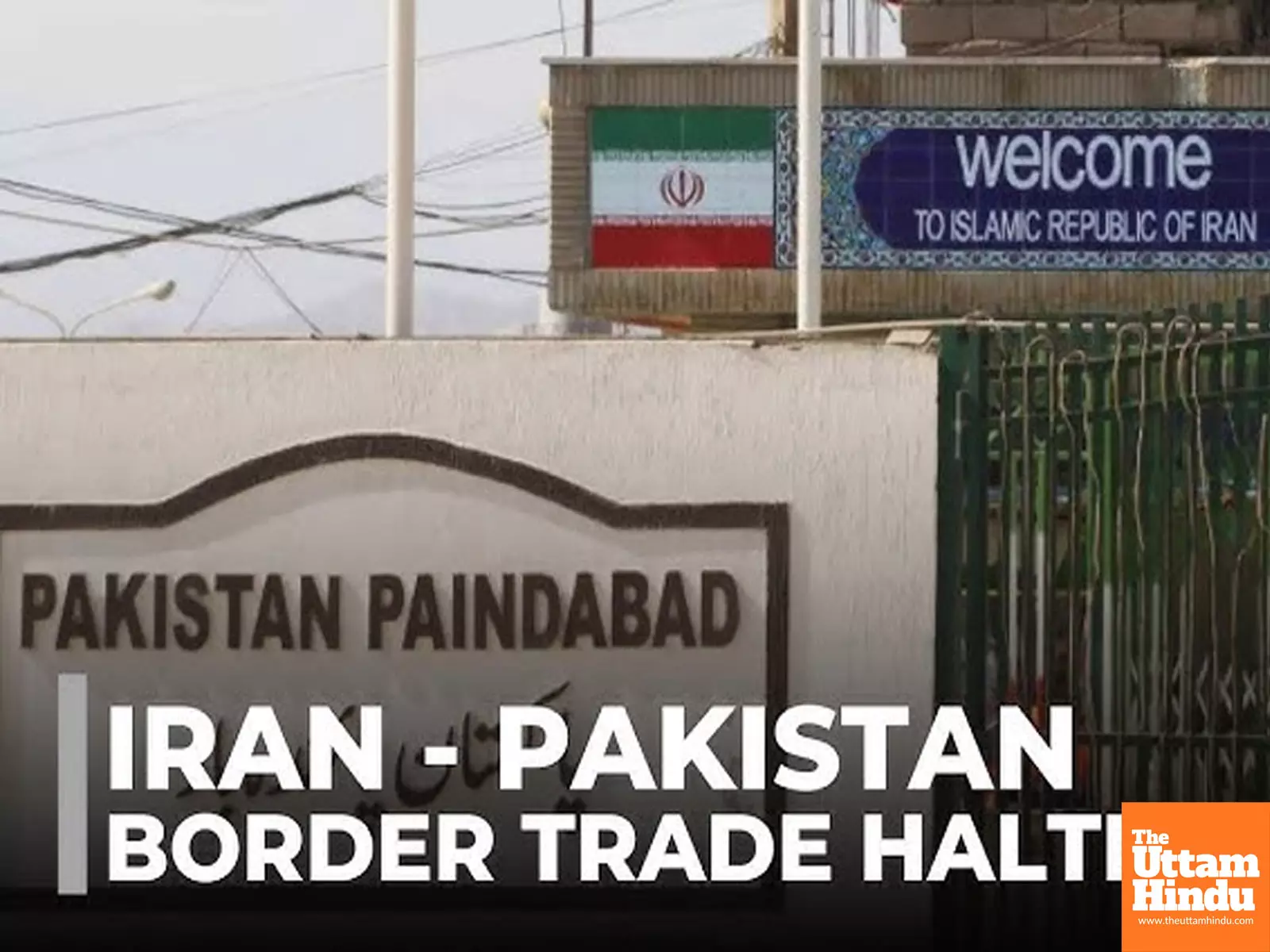Tensions in Middle East Hit Pakistan Hard: Iran Border Sealed, Trade Halts, Economic Woes Deepen

Islamabad (The Uttam Hindu) : As Israel continues its missile strikes on Iran, following the killing of Quds Force commander Saeed Izadi, the ripple effects are being deeply felt across the border in Pakistan. The fallout of the escalating conflict has brought trade between Pakistan and Iran to a grinding halt, triggering economic distress in the already crisis-hit South Asian country. For the past six days, the Taftan border in Balochistan has remained eerily silent. Trade convoys that once bustled through the region now stand still — hundreds of trucks lined up with perishable goods are stranded, unable to enter Iran. The blockade began on June 15, when Pakistan preemptively sealed its border, citing security concerns arising from the regional turmoil.
Traders, Drivers in Distress
“We are standing here for five days. Every truck is incurring a loss of about Rs 20,000 daily,” said Syed Khalil Ahmed, a truck driver waiting at the Taftan crossing. "Food has also run out now." Traders echo similar concerns. “90% of the goods in our business come from Iran. With the border shut, we’re completely paralyzed,” lamented Haji Shaukat Ali, a local trader.
Security and Separatist Concerns Loom
The 909-kilometer-long border between Pakistan and Iran runs through Balochistan, a province already marred by separatist tensions. Analysts warn that increased instability in Iran could spill over into Pakistan. A shift in power dynamics or prolonged conflict in Iran may embolden Baloch separatist movements, reigniting demands for independence and exacerbating existing security challenges. Think tanks in Islamabad are closely watching the situation, fearing that Pakistan may need to significantly boost its border security to prevent militant infiltration and unrest.
Oil Supply at Risk, Inflation May Soar
Another looming crisis is energy. With most of Pakistan’s oil imports coming via the Strait of Hormuz — a potential flashpoint in the conflict — any disruption in maritime shipping could send oil prices soaring. Already burdened with soaring inflation, a depreciating rupee, and ongoing energy shortages, Pakistan may find its economic stability further undermined. Critical sectors such as power generation, transportation, and agriculture could be severely affected, leading to increased pressure on the government to find alternative energy solutions.
Risk of Sectarian Unrest
Pakistan’s sizable Shia population, which makes up around 15% of the country, adds a delicate layer to the crisis. If the Iran-Israel conflict takes on a religious dimension, experts warn of possible sectarian tensions or ideological polarization within Pakistan. The internal harmony of the nation could be at stake if tensions spill onto the streets.
While the missiles are falling in Iran, the economic and security tremors are being felt in Pakistan. With trade suspended, energy uncertainty looming, and fears of sectarian strife on the rise, the regional conflict has placed Pakistan in a precarious position — one that could become even more volatile if the war in the Middle East escalates.
